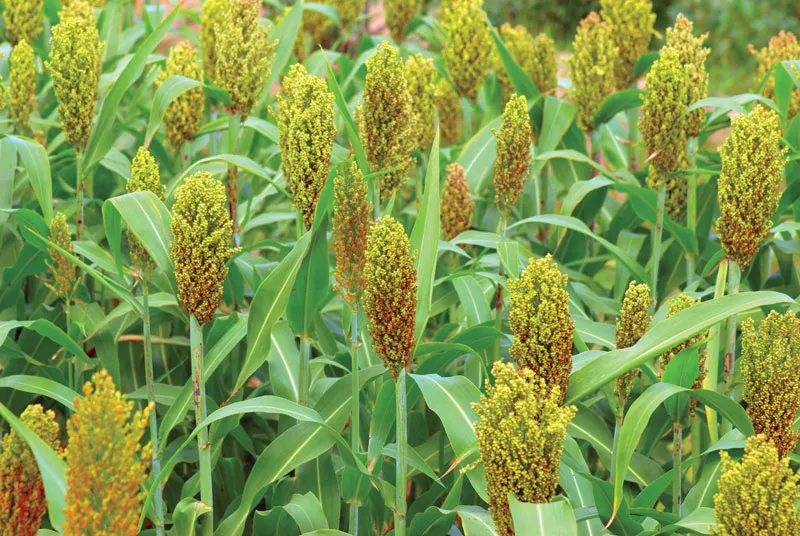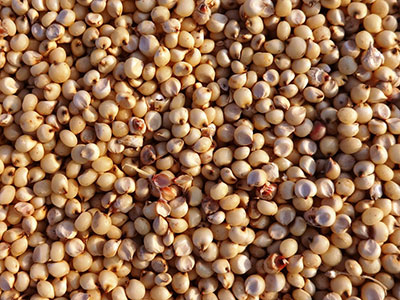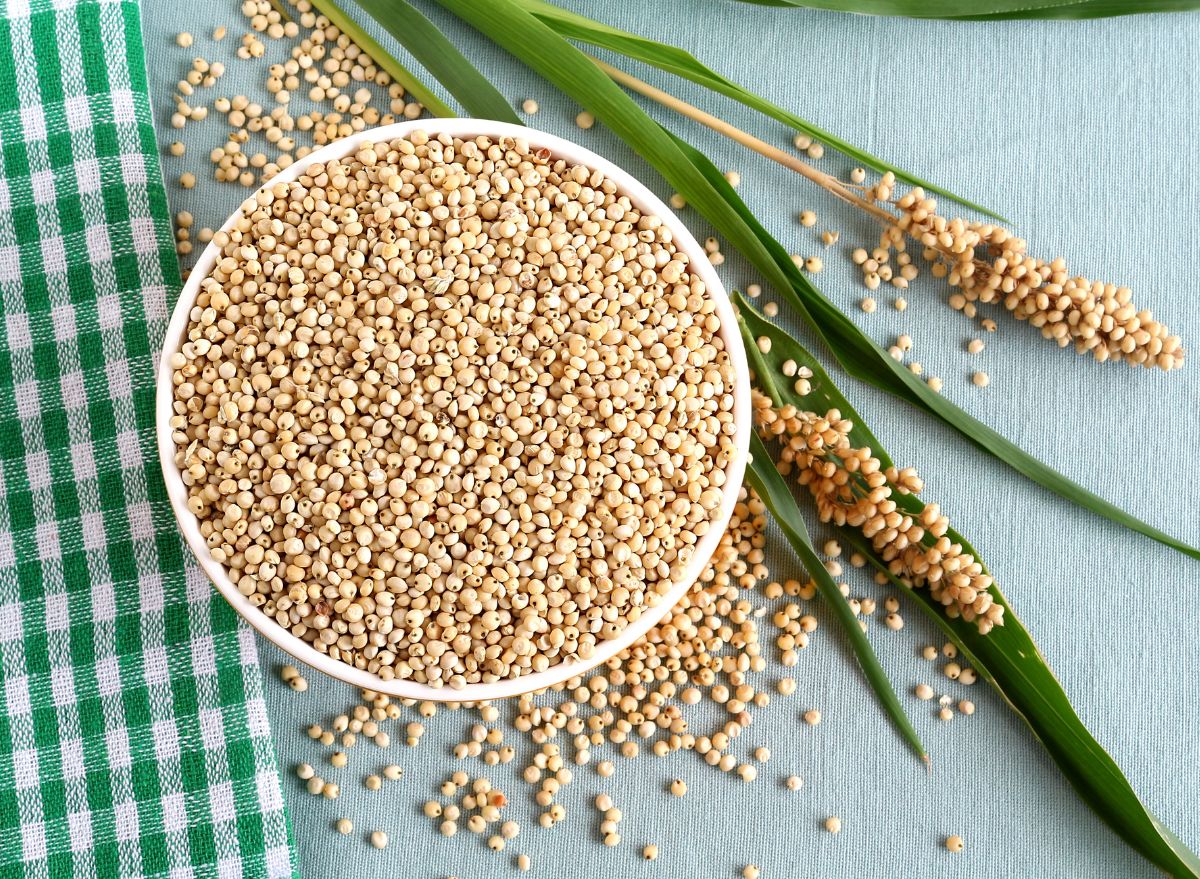Sorghum, also known as guinea corn or dawa in the local Nigerian dialect, is a cereal crop that originated from Africa and is consumed worldwide. It is mostly cultivated and considered the most important food crop in the Savanna areas of Nigeria. Sorghum is known to possess vital nutritional values for healthy life.
Sorghum is classified under the grass family ‘Poaceae’. It comes in a variety of colours such as white, pale yellow, brown, black, or purple. It is the fifth most produced cereal crop in the world and can be consumed by humans, and animals and can be used as a natural source of fuel.
Join our WhatsApp ChannelIt is a very dynamic crop that can be cooked like rice, turned into four or made to pop like popcorn. Sorghum can also be transformed into a sweetening syrup used in processed foods.

Statistics show that as of 2022, the production of sorghum in Nigeria was estimated to be at seven million metric tons and between 2010 to 2022, the production of Sorghum in the country largely increased. Nigeria is listed among the main producers of sorghum worldwide as the crop is cultivated in most parts of the country. However, some states produce more than others. Such states include Kaduna, Kano, Sokoto, Gombe, Plateau, Zamfara, Benue, Kogi, Nasarawa, and Taraba.
READ ALSO: 5 Secret Health Benefits Of Charcoal
Types of Sorghum

Beyond pigment diversity, Sorghum is also classified in types. There are four major types of Sorghum and they include:
Grain Sorghum
Grain sorghum comes in different colours, shapes, and sizes. They can be red, orange, bronze, pale yellow, cream, white or black. They can take on a tight-headed, round panicle form or open, droopy panicle that can be tall or short. Red, orange or bronze sorghum can be used in different value chain. Pale yellow, cream and white coloured sorghum can be processed into flour for consumption. Black and purple varieties contain vital antioxidant properties and can be used in other food applications.
Forage Sorghum
This type usually grows about 8-15 feet tall and is mostly used as silage for feeding livestock, for hay production, and grazing pasture. The stems can grow to 1.5 cm thick in some varieties and the leaves are large, up to 4 cm wide and up to 1 m long. The size and shape of the seed head varies as does the colour, shape and size of the seed.
Biomass Sorghum
This type of Sorghum has the largest stature and form of all the varieties of sorghum. It grows to about 20 feet in a normal growing season. It can be cultivated to produce a large amount of non-grain biomass. These species are primarily used for the production of bioenergy and biofuels such as ethanol.
Sweet Sorghum
This species of sorghum is mostly used for the production of sorghum syrup. Unlike grain sorghum, sweet sorghum is harvested for the stalks rather than just the grains and is crushed to produce syrup. It can be used as a healthy alternative sweetener and can be used to produce whiskey and rum type of products. It is also used for biofuel and chemical production.
READ ALSO: 5 Health Benefits Eating Afang Soup

Nutritional/Health Benefits of Sorghum
The nutritional properties of Sorghum make it one cereal crop that everyone needs to include in their diet. Sorghum is a good source of micronutrients like vitamins B1 and B6, copper, iron, magnesium, phosphorus, potassium, selenium, and zinc. It’s also a good source of energy, protein and fibre.
With its rich nutrient content, sorghum plays an active role in aiding health. Here are the health benefits of sorghum consumption:
It Aids Weight Loss
With a healthy mix of protein, complex carbohydrates, dietary fibre, B vitamins, and magnesium, Sorghum plays an active role in aiding weight loss.
In addition to being more satisfying than other dietary types, protein also speeds up metabolism. On the other hand, dietary fibre and complex carbs aid in satisfaction without packing too many calories because they are hard for the body to digest. Due to these qualities, sorghum absorbs energy into the bloodstream slowly. This helps reduce the rate of snacking and stabilises blood sugar levels. B vitamins and magnesium found in sorghum are also important for supporting metabolism, which is an added benefit for weight loss.
It Aids Digestive Health
Sorghum is very rich in fibre and because of this, it aids digestive health. Fibre assists food to pass properly without obstruction through the digestive system and regulates stool size and weight, preventing constipation, diarrhoea, bloating and other digestive problems.
It is a Powerhouse of Antioxidants:
Sorghum is extremely rich in antioxidants and even has more antioxidant properties than popular antioxidant sources like blueberries and pomegranates. Antioxidants carry a whole lot of valuable health benefits as they have anti-inflammatory properties and protect cells from damage by free radicals.
It Promotes Healthy Skin, Hair and Nails
Sorghum is a good source of Silicon. Silicon helps to add health to the skin, hair and nails. It aids in activating hydroxylation enzymes, forms collagen and improves skin strength and elasticity. Silicon also aids in preventing hair loss, strengthening nails, and brightening the appearance of the hair, skin and nails.
READ ALSO: Health Benefits Of African Star Apple
It Strengthens Bones and Teeth
Sorghum contains a good amount of phosphorus which helps strengthen bones and teeth. Phosphorus contains hydroxyapatite, the main structural component in bones and tooth enamel and therefore it aids in the formation and strengthening of bones and teeth in the body.
These and many more are the benefits sorghum adds to health and nutrition.

The Takeaway
Sorghum, a versatile African cereal crop, offers a wealth of health benefits. Its nutritional richness, including vitamins, fibre, and antioxidants, supports weight management, digestive health, and overall well-being. Additionally, sorghum strengthens bones, promotes healthy skin, hair, and nails, and serves as a valuable dietary staple. Whether used for food, fuel, or other applications, sorghum’s role in health and nutrition is undeniable making it a distinguished diet to be added to everyone’s nutrition.

















Follow Us